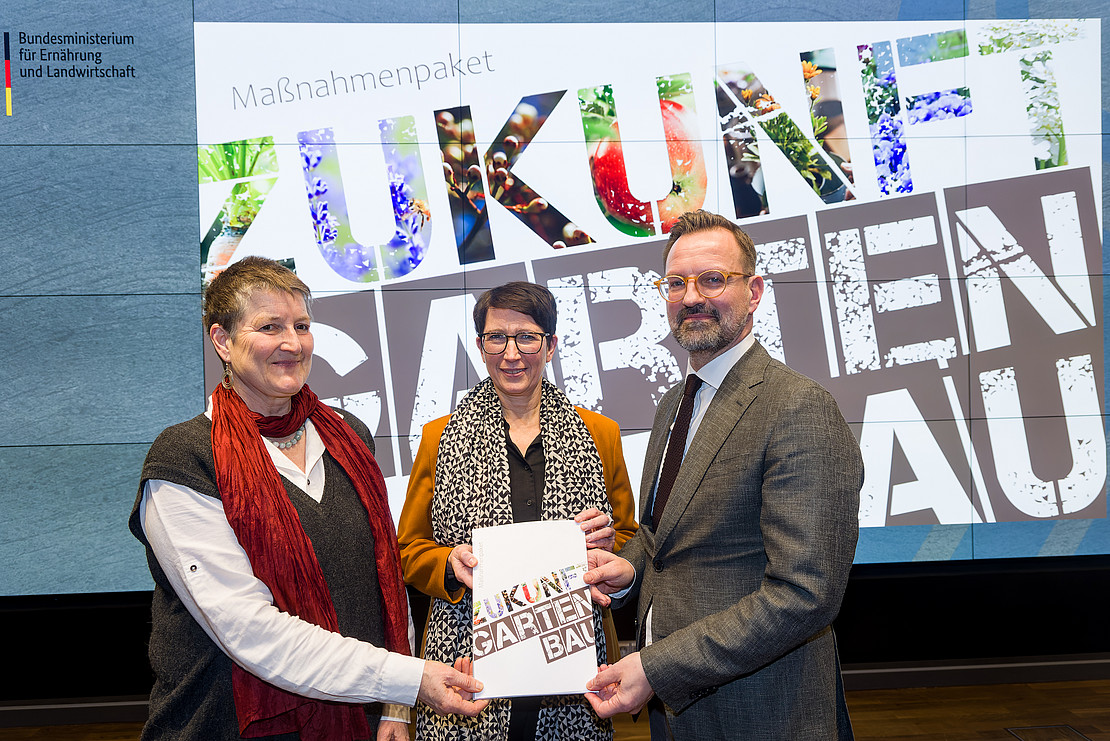This page contains automatically translated content.
Package of measures for the future of horticulture handed over to State Secretary Bender
 Image: ZVG/Rafalzyk
Image: ZVG/RafalzykState Secretary Silvia Bender emphasized: "The package of measures summarizes where exactly the shoe pinches and what needs to be tackled by the public sector to make sustainable management worthwhile for horticulture in Germany - from the reorganization of horticultural sciences to more energy efficiency to improved organic breeding or effective knowledge transfer. I would like to thank all those involved for their commitment! Your suggestions are an important building block for our work"
"The horticultural sector must master the challenges of climate change and sustainable transformation in order to be able to guarantee the production of high-quality fruit and vegetables, ornamental plants and woody plants as well as horticultural services in the future," emphasized Bertram Fleischer, Secretary General of the German Horticultural Association (ZVG), who chaired the working group "Aspects of change in the business and market, due to climate change and the environment, in the production system and in communication".
In order to emerge stronger from this transformation process, horticultural companies need support - on the one hand in adapting political processes, but also in answering research questions and in funding measures, according to the final paper.
Prof. Maria Renate Finckh from the University of Kassel, who chaired the "Technology, digitalization, training and research" working group, spoke out in favour of a "new start for horticultural sciences in Germany".
"In order to further develop the functions of horticulture, university horticultural science education and research is needed to ensure the scientific basis and the supply of qualified workers," emphasized Finckh.
Finckh and Fleischer appeal to the political decision-makers from the BMEL and other relevant departments to tackle the sticking points mentioned in order to secure horticultural production in Germany.